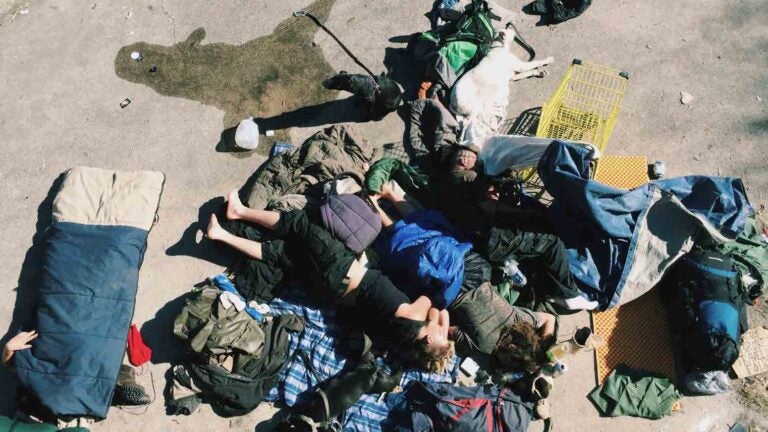
Homeless youth who identify as LGBTQ often deal with additional challenges in family or school life, leading to increased vulnerability, experts say. (Photo/Stocksy)
LGBTQ homeless youth need attention from policymakers, USC scholars say
Increased training, more comprehensive outreach and more inclusivity are proposed as part of team’s research agenda
While research has addressed problems facing LGBTQ students and homeless students, those at the intersection have less support.
In a new paper published in the journal Educational Researcher, two scholars out of the USC Rossier School of Education propose a policy and research agenda to help.
We opted to focus on LGBTQ homeless youth because there’s a dearth of research and policy compared to homelessness in general.
William Tierney
“The difficulties facing homeless youth generally warrant more attention from policymakers and researchers,” said William G. Tierney, the Wilbur-Kieffer Professor of Higher Education at USC Rossier and one of the paper’s authors. “We opted to focus on LGBTQ homeless youth because there’s a dearth of research and policy compared to homelessness in general.”
Tierney co-authored the paper with PhD candidate James Dean Ward.
USC Provost Michael Quick has called homelessness a “wicked problem,” the kind of issue that requires a multifaceted and interdisciplinary solution. In Los Angeles, which has the second-highest rate of homelessness in the United States, organizations like USC have committed resources toward solving the issue.
The troubles of homeless youth are well documented. Under federal guidelines, homeless youth include those in shelters, doubled-up family homes and those living out of cars, empty buildings or on the street. Studies show they often have trouble accessing services, getting school supplies and forming relationships with other students and teachers. They’re more likely to get held back, be disciplined or drop out of school.
LGBTQ students, meanwhile, face other challenges: They are the victims of bullying, such as slurs and insults, in person and online; victimization extends to straight allies of LGBTQ students. Many LGBTQ students become homeless after being “chased out” by intolerant parents, relatives or foster families.
“LGBTQ youth are overrepresented among homeless youth,” Ward said. “Because they lack support, they’re at increased risk of abuse and exploitation. That heightened vulnerability was a driving factor for our research.”
Areas to improve
Tierney and Ward suggest three areas of focus for a policy agenda: increased training, more comprehensive outreach efforts and more inclusive policymaking.
The authors emphasize that the benefit of LGBTQ sensitivity training for homeless liaisons may lead to environments that encourage students to disclose their homeless statuses. Such training may also create greater acceptance within the school environment, which could be further bolstered by including homeless issues in school curricula, Tierney and Ward said.
And, the authors note, policymakers should make decisions with the help of scholars and their research.
In addition to policy, Tierney and Ward also offer suggestions to researchers on how to contribute to solutions. The authors write that using critical theory — which examines power dynamics — may help researchers understand how systems of power might prevent parents or students from accessing help. The authors also note that while much research on LGBTQ homelessness has been qualitative, using better quantitative approaches would help arm policymakers with “the numbers” they often rely on to argue for change.
Tierney and Ward plan to launch a longitudinal project in coming months that would conduct the kind of research for which they advocate in their paper. Tierney has been a board member for Schools on Wheels, a local nonprofit aimed at improving educational services for homeless youth.
“We have the leeway to put forward a project that is not simply aimed at the investigation of a discrete topic, but one that can dramatically improve the lives of those who are among the most at-risk in our society and in Los Angeles,” Tierney said.



